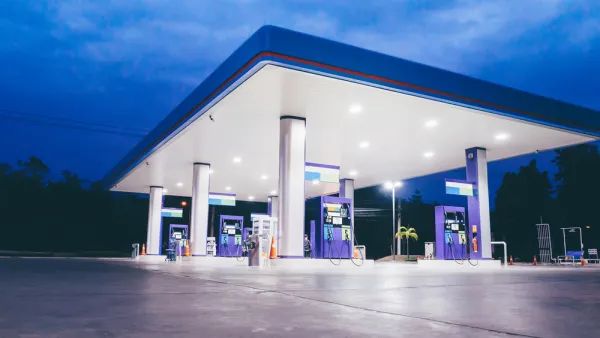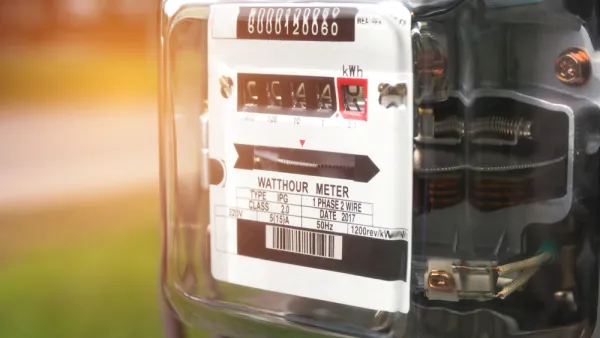Preventing gas tax and vehicle registration fee revenues from being used for non-transportation purposes is seen as key to increasing transportation revenue, be it through raising gas taxes or approving new revenue options, in Maryland and Wisconsin.
"For two decades, governors in Wisconsin have diverted revenue from the fuel tax and license and registration fees to government functions other than transportation," writes Transportation Topics staff reporter Michele Fuetsch.
Most states have some sort of lock on the transportation funds that they generate through fuel taxes, but as a 2011 survey by the American Association of State Highway and Transportation Officials found, the locks are not tamper-proof.
Connecticut legislators "tried and failed to (pass) a bill that would have put a constitutional amendment on the ballot to prevent diversions from the transportation fund. “We’re sick and tired of having some of the highest fuel taxes in the country and the worst roads,” said Michael Riley, president of the Motor Transport Association of Connecticut."
“The money that we’re paying for highway user fees is being diverted regularly to general fund expenses,” Riley said.
“When you pay your licensing fee, your car registration, those types of things, that’s what the intended purpose is, and when they’re not used for that, people find out and they get upset,” said Rep. Keith Ripp, chairman of the Wisconsin House Transportation Committee.
Ripp said policymakers will have to consider everything from tolling to higher fuel taxes and registration fees to raise that amount, “but first we have to protect that fund.”
"Governors and lawmakers tapped Maryland’s transportation fund to avoid making hard tax decisions about how to pay for other government functions," said Maryland State Sen. James Rosapepe, "who sponsored the bill that advanced the proposed constitutional amendment to the ballot," writes Fuetsch.
However, in many, if not most states, the opposite may be more likely the case as general funds are used to make up gas tax revenue shortfalls that have not seen gas tax increases in decades.
According to the Institute on Taxation and Economic Policy's April report, "Among the thirty-two states levying a “fixed-rate” gas tax, the average length of time since the last gas tax increase is 17.2 years. Sixteen states have gone two decades or more without a gas tax increase."
Maryland increased its gas tax by four cents in July last year to 27-cents, now 25th highest in that nation, as a result of new legislation spearheaded by Gov. Mark O'Malley.
Wisconsin's 32.9-cent gas tax, 15th highest in the nation, was last increased eight years ago. [See API (PDF)].
If the federal Highway Trust Fund is any model, locking up gas tax revenue in a trust fund, protected by constitutional amendment, is no guarantee that gas taxes will be raised. In the patch bill known as H.R. 5021 - Highway and Transportation Funding Act of 2104, $10.9 billion of general fund revenue will be transferred to the Highway Trust fund - for ten months.
Before that bill was passed on July 31, "over $55 billion in general fund revenues (not including stimulus funding)" was transferred to the Highway Trust Fund since 2008, wrote Joshua L. Schank, president and chief executive of the Eno Center for Transportation in a recent New York Times op-ed posted here.
FULL STORY: Voters in Wisconsin, Maryland to Decide on Better Protections for Transport Funds

National Parks Layoffs Will Cause Communities to Lose Billions
Thousands of essential park workers were laid off this week, just before the busy spring break season.

Retro-silient?: America’s First “Eco-burb,” The Woodlands Turns 50
A master-planned community north of Houston offers lessons on green infrastructure and resilient design, but falls short of its founder’s lofty affordability and walkability goals.

Delivering for America Plan Will Downgrade Mail Service in at Least 49.5 Percent of Zip Codes
Republican and Democrat lawmakers criticize the plan for its disproportionate negative impact on rural communities.

Test News Post 1
This is a summary

Test News Headline 46
Test for the image on the front page.

Balancing Bombs and Butterflies: How the National Guard Protects a Rare Species
The National Guard at Fort Indiantown Gap uses GIS technology and land management strategies to balance military training with conservation efforts, ensuring the survival of the rare eastern regal fritillary butterfly.
Urban Design for Planners 1: Software Tools
This six-course series explores essential urban design concepts using open source software and equips planners with the tools they need to participate fully in the urban design process.
Planning for Universal Design
Learn the tools for implementing Universal Design in planning regulations.
EMC Planning Group, Inc.
Planetizen
Planetizen
Mpact (formerly Rail~Volution)
Great Falls Development Authority, Inc.
HUDs Office of Policy Development and Research
NYU Wagner Graduate School of Public Service




























